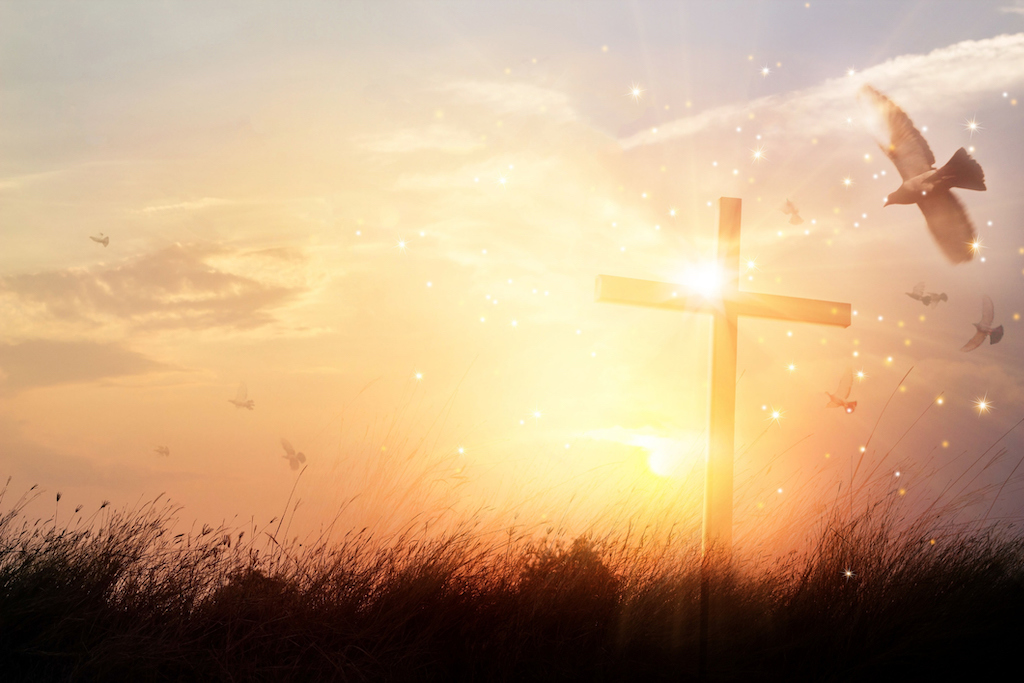Those who have observed the gathering of the bishops of the United States in our annual general assemblies know that the bishops, although striving to live and express communion with one another, don’t always agree about matters affecting the life of the Church.
In my experience, two of the many things on which the U.S. bishops often do not agree is the age for receiving the sacrament of confirmation and what should be the holy days of obligation.
Years ago, when there were debates among the bishops about transferring the dates for the observance or the obligation of attendance at Mass on holy days, Cardinal James A. Hickey of Washington, in support of retaining the obligation, even if the holy day fell on a Saturday or Monday, was known to have said that holy days are spiritual alarm clocks. They awaken us so that we take time to pause on this day and maybe do something out of the ordinary in terms of our routine with home, work and school.
This alarm clock awakens us to something that is important and significant — our spiritual life of faith. God has given us this gift of new life that we celebrated during Holy Week and which we recognize in our celebration of Easter.
Obligatory holy days on the Church calendar alert and awaken us to the truth and to the good in the spiritual life. They help us refocus and examine how we are living Christian lives. Just as every Sunday is a little Easter, every Sunday is a time for pause, prayer and worship.
We often try to combine the day of rest and the day of worship, even though historically they might be different — one being the Sabbath, the other being the day of gathering as a community to worship on Sunday, the day of the Resurrection. The Church encourages that combination.
As will most dioceses in the United States, we will transfer the celebration of the “alarm clock” of Ascension from Thursday to this Sunday. In 1999, the Holy See granted U.S. bishops the option of transferring the celebration to the Seventh Sunday of Easter.
Part of the reason for that transfer was knowing that many people are so occupied with demands of home, work and school that they might not be able to make it to Mass on a Thursday. Moving the observance was a way of encouraging as much participation as possible, inviting all who gather on Sunday to appreciate this feast which, in some ways, gets lost between Easter Sunday and Pentecost.
Another reason was the bishops’ concern for their priests. In dioceses that cover an entire state, e.g., Idaho, Utah and Wyoming, and in others that are largely mission territory where one priest serves multiple parishes, the well-being of the priests had to be considered.
The Ascension highlights our time of waiting. Jesus has completed his work. After his Resurrection he has prepared his disciples to carry out his work. He ascends to the right hand of the Father, where he reigns over
his kingdom in which he has established many dwelling places into which he wants to welcome us.
In our spiritual lives, it can sometimes also be helpful to see ourselves as living perpetually between this time of the Ascension and this waiting for the coming of the Spirit at Pentecost. We’re in this place spiritually all the time because the Spirit can always be renewed in our hearts, in our lives.
As Pope Francis stated in his general audience address on Ash Wednesday, “When Jesus says to his disciples — and also to us — ‘Go!’, he is not just communicating a word. No. He simultaneously communicates the Holy Spirit because it is only thanks to him, thanks to the Holy Spirit, that one can receive Christ’s mission and carry it out (cf. Jn 20:21-22). The apostles, in fact, out of fear, remain closed up in the Upper Room until the day of Pentecost arrives and the Holy Spirit descends upon them (cf. Acts 2:1-13).
“And in that moment the fear leaves them and, with his power, those fishermen, mostly unlettered, will change the world. … It is the word of the Spirit, the strength of the Spirit that bears them onward to change the world. The proclamation of the Gospel, therefore, is only realized in the power of the Spirit, who precedes the missionaries and prepares hearts: He is ‘the engine of evangelization.’”
Sometimes we can feel lethargic, a lack of zeal in terms of life, duties and responsibilities toward family and work, as well as the faith. What gives us the ability to overcome that lethargy is confidence in and awareness of the movement and grace we receive from the Spirit.
All of our life should be like this time during Christ’s departure and our awaiting of the fulfillment of the promises. We get a taste of it when we receive those graces in baptism and confirmation and when we continually turn to the Spirit.
See the Ascension as an alarm clock, an awakening of what we should be about: joyful, hopeful expectation of the power of the Spirit to assist us to grow in holiness and to assist us in leading good lives.

